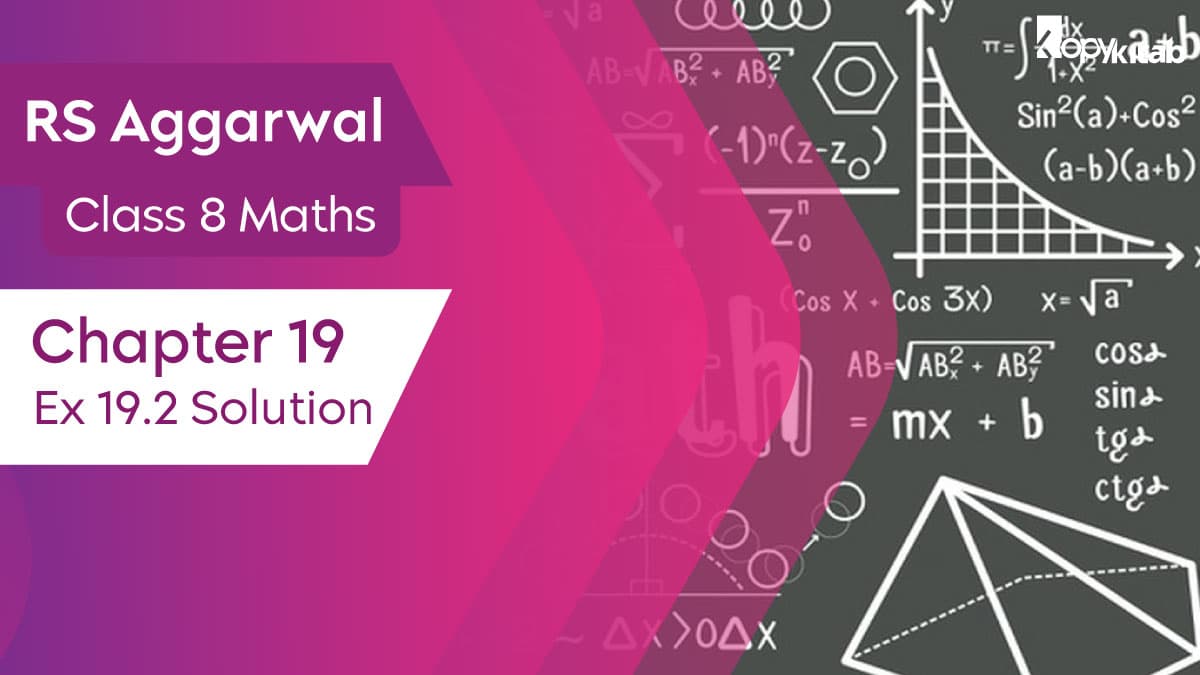
RS Aggarwal Class 8 Maths Chapter 19 Ex 19.2 Solutions: This exercise deals with 3D figures such as the square pyramid, tetrahedron, rectangular pyramid, pentagonal pyramid, and rectangular prism. The students will learn how to calculate the face, vertices, and edges of the figures using Euler’s formula. The students can access the solutions while solving the questions from the RS Aggarwal textbook. These solutions are designed for the students so that they can get to know the correct answers to the questions in case they are not able to find it.
All solutions are designed by our Mathematics experts in an extremely simple to understand language. The solutions are one of the best study materials while doing the Maths assignments or while preparing for Class 8th Maths final exams. The students can examine their knowledge of the topics of 3D figures & get confident about the answers. RS RS Aggarwal Class 8 Maths Chapter 19 Ex 19.2 Solutions PDF is available free of cost that enables the students to effortlessly study any time & anywhere.
Access RS Aggarwal Class 8 Maths Chapter 19 Solutions PDF
Download RS Aggarwal Class 8 Maths Chapter 19 Ex 19.2 Solutions
RS Aggarwal Class 8 Maths Chapter 19 Ex 19.2 Solutions
Important Definition for RS Aggarwal Class 8 Maths Chapter 19 Ex 19.2 Solutions
- 3D figures
They are made up of a combination of certain sides. Most of the solid figures comprise polygonal regions. These regions are edges, faces, and vertices. Solid geometric shapes that have edges, faces, & vertices are called polyhedrons.
- Faces of 3D figures
The flat surface of a polyhedron is its face. The solid shapes can have more than one face.
Cubes and cuboids have six faces.
Cylinders have two flat faces and a curved face.
- Edges of 3D figures
The faces meet each other at the edges. Edges are straight lines which considered as the junction of 2 faces.
Cubes and cuboids have twelve edges.
Cylinders have two edges.
- Vertices of 3D figures
The points of intersection of edges represent the vertices. Vertices are represented by points.
Cubes and cuboids have 8 vertices.
Cylinders have no vertex.
- Euler’s Formula
According to Euler’s formula for any convex polyhedron, the number of Faces (F) & vertices (V) added together is exactly two more than the number of edges (E)
Euler’s formula: F + V = 2 + E
Benefits of RS Aggarwal Class 8 Maths Chapter 19 Ex 19.2 Solutions
- The students can enhance their problem-solving skills with the help of these solutions which they can easily access & study at any time & anywhere.
- The solutions enable the students to develop the proper knowledge of topics on the calculation of the face, vertices, and edges of the figures using Euler’s formula with the help of these solutions.
- RS Aggarwal Class 8 Maths Chapter 19 Ex 19.2 Solutions are designed according to the latest syllabus pattern & guidelines of the CBSE.
- The solutions provide detailed & explanative answers for all questions based on Euler’s formula in easily understandable language.
Know more at the official website.
